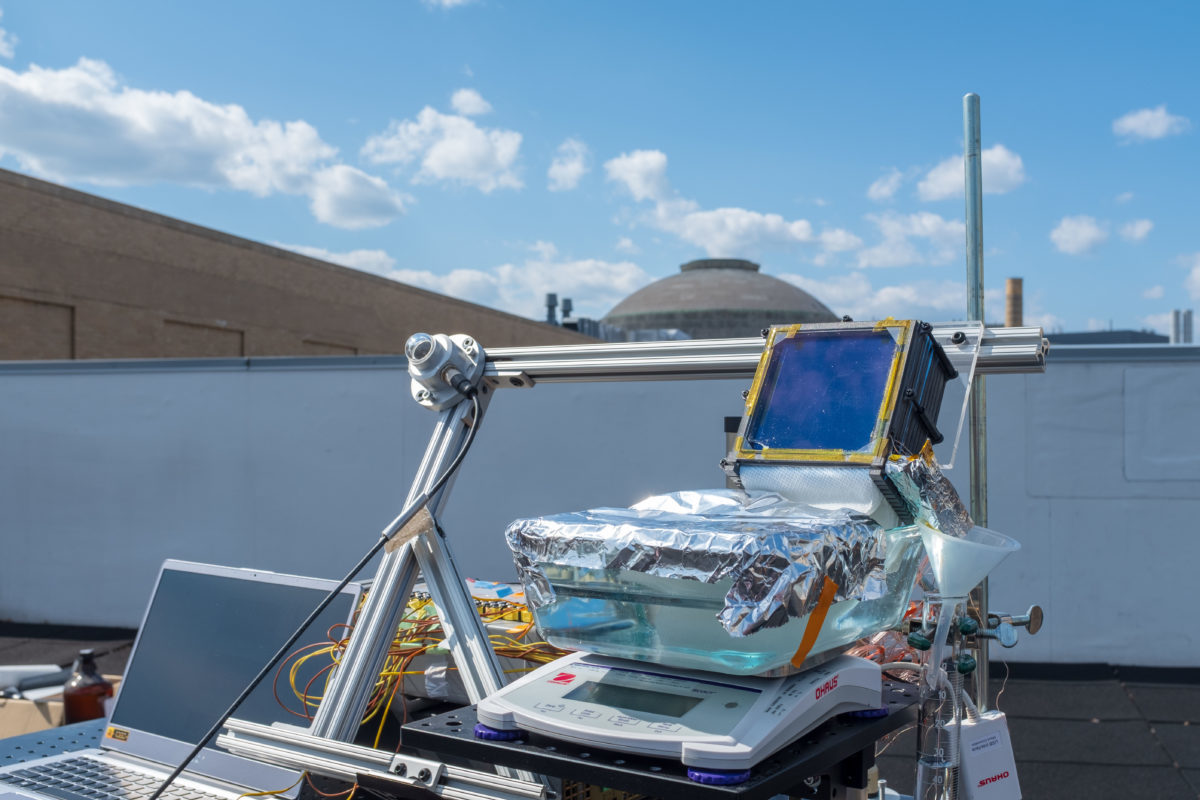From pv magazine International
Scientists at the Massachusetts Institute of Technology (MIT) have developed a prototype solar-powered water desalinator which they say achieved solar-to-vapor efficiency of 385% through a multi-stage process where the heat released as water condensed was recycled, flowing into the next layer to power the next stage of evaporation.
Rather than using photovoltaics to power electrically-driven desalination – a method which has been used in large scale applications already – MIT’s process uses solar absorbers to gather heat from the sun and evaporate the saltwater.
A prototype on an MIT rooftop delivered water which exceeded local drinking water standards at a rate of 5.78 liters per hour, per square meter of solar collecting area. The university said that was more than double the previous record for water produced by passive solar desalination. By optimizing and adding further stages to the desalination process, the group estimates devices based on the concept could reach efficiencies as high as 800%.
For the full story, please visit our pv magazine International site.
This content is protected by copyright and may not be reused. If you want to cooperate with us and would like to reuse some of our content, please contact: editors@pv-magazine.com.









Seen Amazing Renewable Power project . Myself Electrical Engineer , in college level done project on Solar Energy.